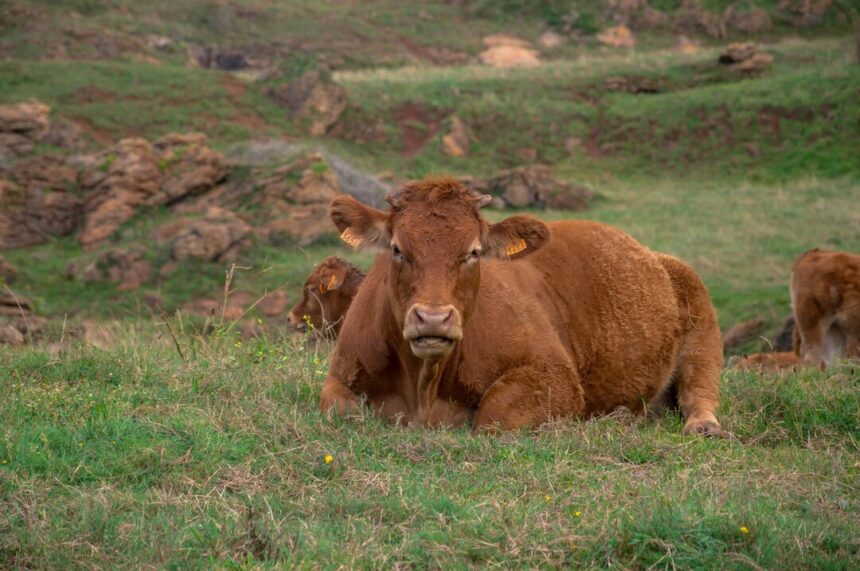South Devon cattle, known for their versatility, docility, and excellent meat production, have become increasingly popular among farmers in South Africa. Originating from the southwestern counties of England, South Devon cattle have adapted well to South African conditions, thriving in various climates and terrains. For farmers interested in breeding and farming South Devon cattle, understanding key aspects of their management and husbandry is crucial. In this article, we’ll explore 10 essential insights into breeding and farming South Devon cattle in South Africa.
- History and Origin:
South Devon cattle, also known as “Orange Devons” in South Africa, have a rich history dating back to the 16th century in England. They were imported to South Africa in the 1800s and have since become valued for their adaptability, hardiness, and superior beef quality. - Breed Characteristics:
South Devon cattle are renowned for their moderate frame, deep bodies, and rich red coat color. They are dual-purpose cattle, excelling in both beef and dairy production. South Devon cattle are known for their excellent maternal instincts, easy calving, and fast growth rates. - Adaptability:
One of the key strengths of South Devon cattle is their adaptability to a wide range of environments and management systems. They can thrive in both extensive and intensive farming systems, making them suitable for various regions and production systems in South Africa. - Meat Quality:
South Devon cattle produce high-quality beef known for its tenderness, marbling, and flavor. The meat is prized by consumers and premium markets for its superior eating qualities, making South Devon beef a valuable commodity in the beef industry. - Breeding Objectives:
When breeding South Devon cattle, farmers typically focus on improving traits such as growth rate, muscling, fertility, and maternal instincts. Selective breeding programs aim to produce cattle with superior genetics for beef production, ensuring profitability and sustainability in the cattle industry. - Health and Welfare:
Maintaining the health and welfare of South Devon cattle is essential for successful breeding and farming. Regular veterinary care, vaccination programs, and proper nutrition are crucial for preventing diseases and promoting optimal growth and performance. - Grazing Management:
South Devon cattle are well-suited to grazing systems and can thrive on a diet of grass and forage. Effective grazing management practices, such as rotational grazing and pasture rotation, help maximize forage utilization and optimize herd health and productivity. - Reproduction and Calving:
South Devon cattle are known for their fertility and ease of calving, with cows typically producing calves with minimal assistance. Proper reproductive management, including bull selection, breeding protocols, and calving assistance, is crucial for maximizing breeding efficiency and herd productivity. - Marketing and Sales:
Marketing South Devon cattle and their offspring requires a strategic approach to target the right buyers and markets. Participating in breed shows, auctions, and marketing programs can help farmers showcase the quality of their South Devon genetics and attract potential buyers for both breeding stock and beef products. - Industry Associations:
Joining industry associations and breed societies, such as the South African South Devon Cattle Breeders’ Society, provides farmers with access to valuable resources, networking opportunities, and technical support. These associations play a vital role in promoting the breed, advancing genetic improvement, and supporting the interests of South Devon breeders in South Africa.
Breeding and farming South Devon cattle in South Africa offer numerous opportunities for aspiring farmers seeking a profitable and sustainable venture. By understanding the key insights outlined in this article, farmers can effectively manage their South Devon herds, optimize production, and contribute to the growth and sustainability of the beef industry in South Africa. With their exceptional traits, adaptability, and market appeal, South Devon cattle continue to be a valuable asset to the agricultural landscape of the country.
Join 'Farmers Mag' WhatsApp Channel
Get the latest Farming news and tips delivered straight to your WhatsApp
CLICK HERE TO JOIN






